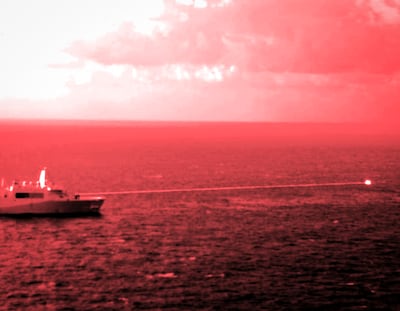A high level US government delegation will travel to Riyadh to meet representatives from GCC governments to discuss “shared priorities” in the region, especially strengthening security, a US government statement said.
The delegation is scheduled to visit from February 13-16 to participate in the US-Gulf Co-operation Council Working Group meetings and will include officials from the State Department, Pentagon and the National Security Council, which includes US cabinet officials and specialist advisers.
According to Dana Stroul, Deputy Assistant Secretary of Defence for the Middle East, dealing with Iran and countering terrorism, as well as the prospect of creating an integrated air and missile defence system in the region will be the main topics of discussion, alongside maritime security.
The US delegation for the working group on Iran will be led by Rob Malley, Special Envoy for Iran, Christopher Landberg, US Special Envoy for the Global Coalition to Defeat ISIS, and several other senior state department officials.
Saudi Arabia's Ambassador to the US
Representatives from Nasa, US Air Force Central Command, Defence Security Co-operation Agency, US Navy Central Command and Defence Intelligence Agency will also be present in Riyadh. The Defence Intelligence Agency is the military branch of US intelligence.
“What’s very clear to the US, and what is very clear to our partners, is that the threats of today and the threats of tomorrow do not respect borders and therefore call for updating and upgrading how we partner together,” Ms Stroul said.
She said that proliferation of unmanned aerial vehicles, or drones, was just one challenge to security in the region.
The US continues to invest heavily in cost effective ways to intercept drones, which fly at much lower altitudes than expensive conventional radar systems and air defence missiles are configured for.

Special radar systems and sensors are already being deployed to protect US forces in Iraq from Iran-made drones, which are smaller than manned aircraft and have a smaller radar signature than missiles, making them hard to detect until it is too late. The US has in some cases used laser weapons to burn the electronics of enemy drones.
Ms Stroul also called for stronger efforts to combat the smuggling of weapons and drugs across the region, and called for multilateral co-operation to stop states from arming and training proxy militias and terror groups in the region.
This is the second time officials will convene after the first working group meetings took place last March. The US put off the follow up meeting officially scheduled for last October, reportedly due to political tension over the decision by OPEC+ members to slash oil output.

Despite the Biden administration stating that it would review its relationship with Saudi Arabia, Saudi Arabian officials continue to refer to the US as a strong partner.
In January, Saudi Arabia’s ambassador to the US Princess Reema bint Bandar said the relationship of the two countries is “beyond critically necessary for the world”.
Princess Reema said “there is disagreement sometimes but there is also a strong partnership — the partnership creates a more stable world”.
“We are strategic partners and we've been friends for over 80 years, and we've stood by each other where it counts and where it matters,” she said during a World Economic Forum panel at Davos.

This week’s meetings are meant to showcase the significance the US places on ties with GCC members.
All GCC members including Saudi Arabia, Oman, Bahrain, Kuwait, Qatar and the United Arab Emirates have condemned Iran’s “malign behaviour” and for supplying weapons to Yemen.
Iran is also accused of breaching UN resolutions by providing drones to Russia for its onslaught on Ukraine, believed to be delivered directly by air.
Iran supports Yemen's Houthi rebels whose weapons have been used to attack the UAE and Saudi Arabia.
Saudi Arabia continues to be a target of missile and drone attacks from Yemen since it launched a military campaign against the Iranian-backed Houthis in 2015 in a coalition with the GCC countries.
Attacks have decreased recently and in January, Saudi Arabia and Houthi rebels discussed ways to strengthen the informal ceasefire, according to Saudi Arabian, Yemeni and UN officials.
However on Monday, the British government revealed it had captured an illegal Iranian weapons shipment to Yemen, which included cruise missiles and anti-aircraft missiles.
“Once again the Iranian regime has been exposed for its reckless proliferation of weapons and destabilising activity in the region,” said Britain's Middle East minister Lord Tariq Ahmad. He said that Iran's continued violation of the arms embargo has “stoked further conflict and undermined UN-led peace efforts”.

